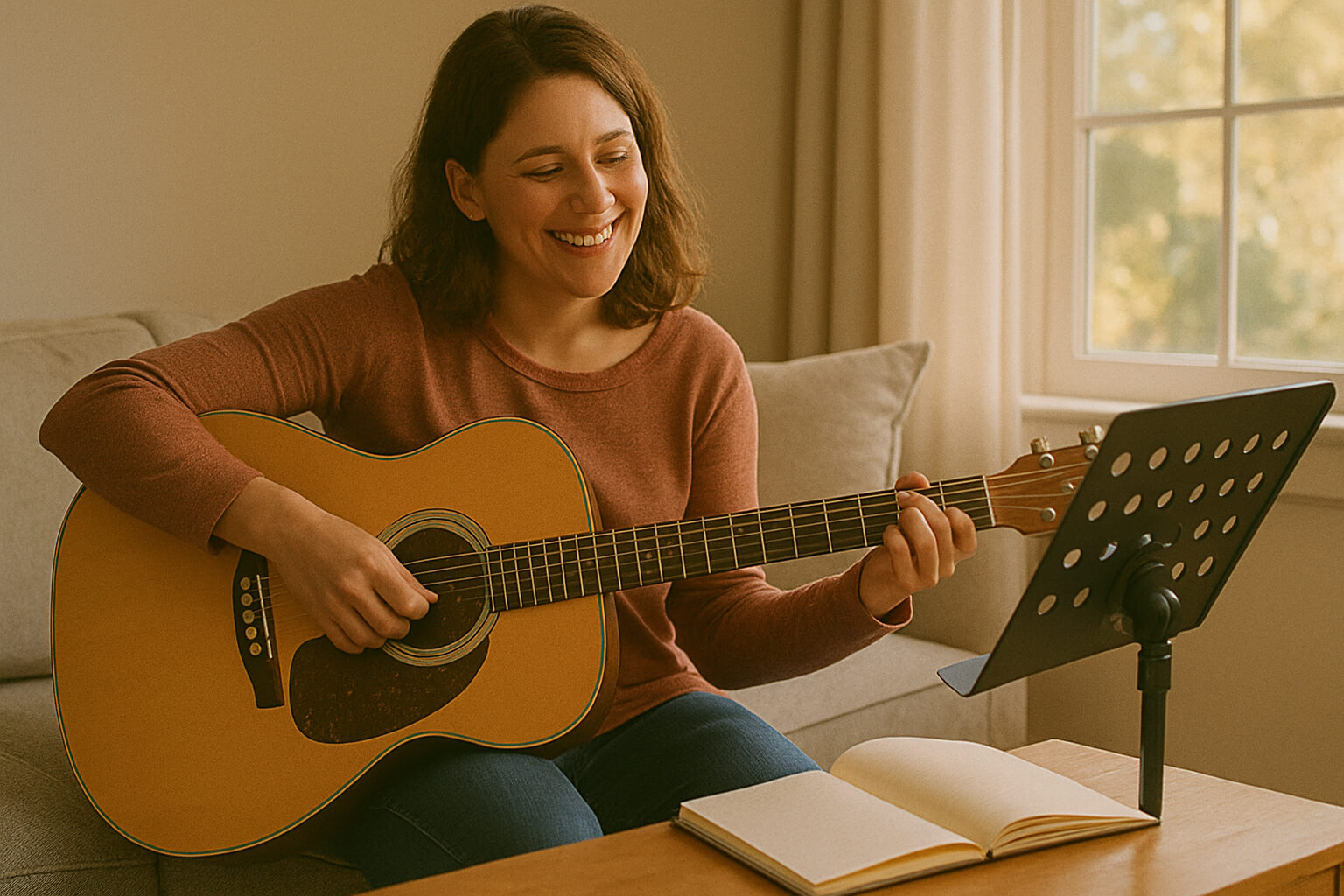August 08, 2025

Starting music as an adult — or without any prior training — can feel intimidating. The truth? You don’t need a childhood full of piano lessons to learn an instrument or make music you love. The key is structured, enjoyable practice and building habits that fit into your life. Whether you’re learning guitar, piano, or another instrument, these tips will help you get started on the right foot.
If you’ve never played before, your muscles (and brain) need time to adapt.
Practice Makes Perfect — Effective Strategies for Improving Musical Skills
Your motivation will skyrocket if you love the sound and feel of your instrument. Some beginner-friendly instruments include:
How to Choose Your First Musical Instrument
Apps like Yousician and Simply Piano provide interactive, gamified lessons that guide you step-by-step. For a more structured approach, pair them with video lessons from platforms like Fender Play.
The Best Music Learning Apps for Beginners
Instead of vague targets like “learn guitar,” break them down into achievable goals:
Achieving small wins keeps you motivated and gives you a clear sense of progress.
Even if it feels awkward, recording yourself can highlight growth and reveal areas that need attention. For home recording, a USB mic like the Audio-Technica AT2020USB+ is easy to set up and works with free software like GarageBand.
How to Choose Your First Microphone for Home Recording
Choose simple, slow songs to play along with. Use YouTube’s playback controls or a DAW like Ableton Live to slow down the track to 50–75% of its original speed. Playing along helps you improve rhythm, timing, and confidence.
The Role of Rhythm in Music — Why Timing is Everything
Joining a community — whether online or local — is a great way to stay motivated and get feedback from others. Some great places to connect with fellow learners include:
How to Stay Motivated When Learning an Instrument
For a comprehensive beginner’s journey, explore these related articles from RocketPages:
With these practice tips, structured learning tools, and community support, you'll be able to progress at your own pace and enjoy your musical journey. Whether you're picking up an instrument for the first time or returning after a long break, remember that consistency is key. Happy playing!
Stay up to date with the latest tips, expert insights, product reviews, and step-by-step guides to help you grow, create, and succeed—no matter your industry or passion.